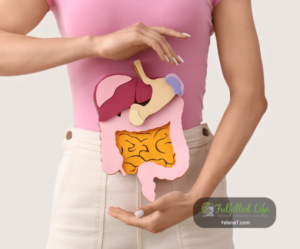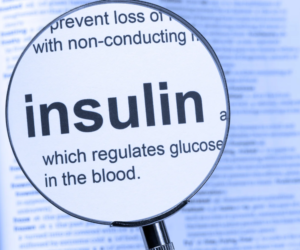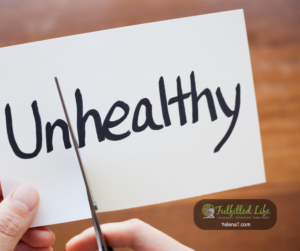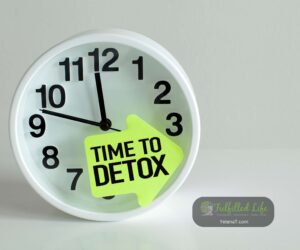Environmental toxins are substances present in our environment that can negatively impact our health and well-being. Unfortunately, they are all around us – in our food, air, water, and even in everyday products such as cleaning supplies and personal care items. Exposure to these toxins can cause a variety of health issues, including headaches, fatigue, respiratory issues, and even chronic diseases such as cancer.
Heavy metals are one of the most significant environmental toxins that affect our health. These include mercury, lead, and arsenic, among others. Heavy metals are found in many everyday products, including fish, dental fillings, food, and even vaccines. When these heavy metals accumulate in the body, they can cause a wide range of health issues, including neurological problems, digestive issues, and immune dysfunction.
Another environmental toxin that affects our health is pesticides. These are chemicals used in agriculture to kill pests and protect crops. Pesticides are found in many foods, including fruits, vegetables, and grains. Exposure to pesticides has been linked to a range of health issues, including cancer, reproductive problems, and neurological disorders.
But that’s not all. Here are some more specific examples of environmental toxins:
- Bisphenol A (BPA): BPA is a chemical found in plastics, such as water bottles, food containers, and even the lining of some canned foods. Exposure to BPA has been linked to hormone disruption, reproductive problems, and even cancer.
- Phthalates: Phthalates are chemicals commonly found in personal care products, such as shampoo, lotion, and perfume. They are also found in plastics and some food packaging. Exposure to phthalates has been linked to developmental problems in children, as well as reproductive problems and hormone disruption in both men and women.
- Volatile Organic Compounds (VOCs): VOCs are chemicals found in a wide range of products, including paints, cleaning supplies, and air fresheners. Exposure to VOCs can cause headaches, dizziness, and even neurological problems.
- Perfluorinated Chemicals (PFCs): PFCs are chemicals used in non-stick coatings, such as those found in cookware and food packaging. Exposure to PFCs has been linked to hormone disruption, as well as liver and kidney problems.
- Flame Retardants: Flame retardants are chemicals added to products such as furniture and electronics to slow the spread of fire. Exposure to flame retardants has been linked to hormone disruption, reproductive problems, and even cancer.
- Persistent Organic Pollutants (POPs): POPs are a group of chemicals that are highly persistent in the environment and accumulate in the food chain. Examples of POPs include PCBs and dioxins. Exposure to POPs has been linked to a wide range of health issues, including cancer, reproductive problems, and immune dysfunction.
These are just a few examples of the many environmental toxins that can negatively impact our health. It is essential to be aware of these toxins and take steps to reduce exposure in order to support our overall health and wellness.
So, what can we do to reduce our exposure to environmental toxins and support our body’s natural detoxification system?
One crucial step is to make dietary changes. It is important to consume a diet rich in whole, organic foods, and to avoid processed foods, which often contain additives and preservatives. Additionally, incorporating foods that support detoxification, such as cruciferous vegetables and leafy greens, can help the body eliminate toxins.
Another step is to use natural cleaning and personal care products. Many conventional products contain harmful chemicals that can be absorbed through the skin or inhaled. Switching to natural products made with non-toxic ingredients can greatly reduce exposure to these toxins.
In addition to the previously mentioned tips, there are a few other ways to support the body’s natural detoxification system and reduce exposure to environmental toxins.
One important tip is to stay adequately hydrated. Drinking enough water helps flush toxins out of the body through urine and sweat. It is recommended to drink at least 8 cups of water per day, and even more, if you are physically active or live in a hot climate.
Another helpful practice is using a sauna. Saunas are a great way to sweat out toxins and improve circulation. Regular sauna use has been shown to have numerous health benefits, including reduced inflammation, improved cardiovascular health, and enhanced immune function.
Lymphatic movement is also important for supporting the body’s natural detoxification system. The lymphatic system is responsible for removing waste and toxins from the body, but unlike the circulatory system, it does not have a pump to move lymph fluid. Dry brushing or lymphatic massage can help stimulate lymphatic flow and aid in the removal of toxins from the body.
Finally, engaging in practices such as yoga, deep breathing and meditation can help support the body’s natural detoxification system. These practices help reduce stress, which can have a negative impact on the body’s ability to eliminate toxins.
In addition to these lifestyle changes, testing can also be a useful tool in identifying environmental toxins and their effects on the body. Tests such as heavy metal testing, urine organic acid testing, and hormone testing can provide valuable information on the body’s toxic burden and any imbalances that may be contributing to health issues.
For example, heavy metal testing can identify the presence of heavy metals in the body and provide insight into potential sources of exposure. Urine organic acid testing can identify imbalances in the body’s detoxification pathways, while hormone testing can identify any disruptions in the endocrine system that may be caused by environmental toxins.
Once these imbalances are identified, a personalized action plan can be created to support the body’s natural detoxification processes and promote overall health and wellness.
It’s important to remember that we are all exposed to environmental toxins to some degree, and it can be overwhelming to think about all the potential sources of exposure. However, taking small steps towards reducing exposure can have a significant impact on our overall health and wellness.
So, don’t feel like you need to make drastic changes all at once. Start by incorporating some of the tips mentioned above, such as eating more whole, organic foods and using natural cleaning products. And remember to prioritize self-care practices like hydration, exercise, and stress reduction techniques, as they can also support the body’s natural detoxification process. By taking these small steps, you can improve your health and well-being in a meaningful way.
If you have any questions or concerns about environmental toxins and their impact on your health, feel free to schedule a free consultation with me. As a Board Certified Naturopath, I can work with you to identify specific health imbalances and develop a personalized action plan to help you reach your health and wellness goals. Together, we can take steps towards reducing exposure to environmental toxins and promoting optimal health.








